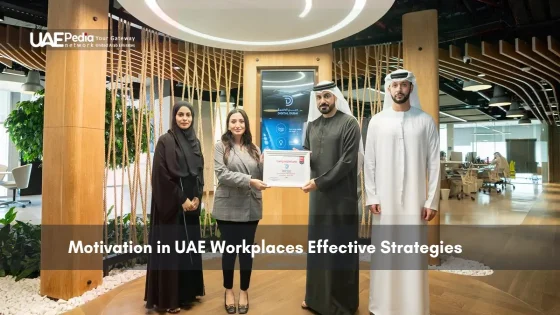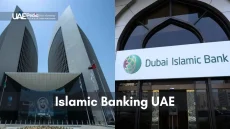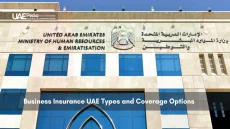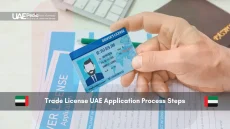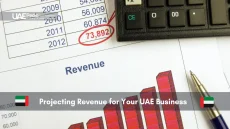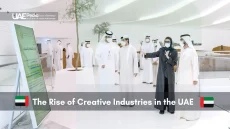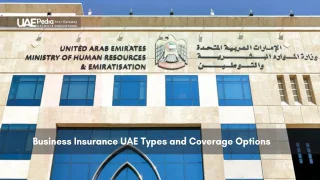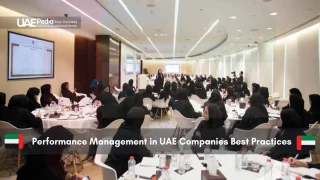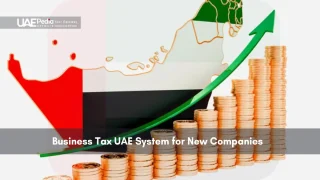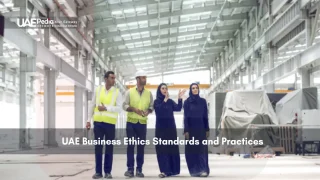What if the secret to thriving teams isn’t just paychecks or promotions? A recent survey reveals 97% of staff in top UAE companies describe their workplaces as psychologically healthy environments—a foundation where creativity and commitment flourish. This statistic reshapes how we view productivity, blending cultural nuance with modern strategy.
Leading organizations here craft ecosystems where growth isn’t accidental. As Michael Bush, CEO of Great Place to Work®, notes: “The best workplaces invest in people who transform challenges into value.” From flexible schedules to skill-building programs, these firms balance five best practices that fuel both performance and satisfaction.
Why does this matter? When teams feel supported, they innovate faster and stay longer. Over 95% of staff in high-performing UAE companies praise facilities that enable seamless collaboration—proof that smart design elevates results.
- Discover how psychological safety and purpose-driven cultures unlock potential
- Explore hybrid models merging tradition with cutting-edge tech
- Learn actionable tactics from companies setting regional benchmarks
Understanding the Importance of a Positive Work Environment
What transforms a good team into a great one? It’s not just talent—it’s the space where they thrive. Picture desks arranged for spontaneous brainstorming, quiet zones for deep focus, and lounges where laughter mixes with fresh ideas. This isn’t corporate fantasy. 95% of professionals in top-performing companies say well-designed facilities directly fuel their productivity.
Google’s Project Aristotle found that teams with high psychological safety deliver 19% higher productivity and 27% lower turnover—making a safe climate the single most powerful performance lever you can pull. Ref.: “Pretty, N. (2024). Project Aristotle: Google’s Data-Driven Insights on High-Performing Teams. Aristotle Performance.” [!]
The Impact of Workplace Culture on Daily Output
Culture acts like invisible scaffolding. When teams trust their peers and leaders, they solve problems faster. One survey participant shared:
“Our open-door policy means no idea is too small—we’ve turned coffee break chats into three major process improvements this year.”
Inclusive environments also slash project delays. Teams with strong communication habits report 30% fewer misunderstandings in collaborative tasks.
MIT research warns that piling initiatives onto already overloaded teams backfires—task-switching and “push” scheduling quietly erode capacity and agility, draining performance long before new programs pay off. Balance workload first, then iterate. Ref.: “Eastwood, B. (2024). How dynamic work design can prevent overload. MIT Sloan.” [!]
What Surveys Reveal About Success Patterns
Data from the Great Place to Work® Trust Index© shows a clear link between satisfaction and business outcomes. Companies prioritizing ergonomic setups and mentorship programs see:
- 42% higher retention rates compared to industry averages
- 19% faster project completion times
- 67% of staff actively recommending their employer
But it’s not just about bean bags or free snacks. As one HR director noted: “Our monthly ‘innovation hours’—where anyone can pitch process upgrades—have become our secret sauce for staying ahead.” When people feel heard, they invest more than just time.
Best Practices for Motivation in UAE workplaces
Ever wonder why some teams sprint while others stroll? The answer lies in how we spark their engines. Michael Bush of Great Place to Work® puts it simply: “People thrive when their daily tasks connect to something bigger than a paycheck.”
Intrinsic Versus Extrinsic Motivators
Imagine two colleagues: one beams after solving a complex problem, while another celebrates a promotion. Both valid—but different fuels. Internal drivers like mastery and purpose create lasting momentum. External rewards? They’re the nitro boost for short-term goals.
A tech firm’s HR director shared: “Our ‘Impact Hours’ let engineers spend 20% of their time on passion projects. Three of these became our top-selling tools last year.” When roles align with organizational vision, growth becomes collective.
Recognition and Rewards That Inspire Excellence
Praise shouldn’t gather dust in annual reviews. One sales team leader told us: “We do ‘kudos calls’ every Friday—three minutes shouting out small wins. It’s changed our Monday energy completely.”
Balance matters. While bonuses attract talent, consistent acknowledgment retains it. Top-performing companies use:
- Peer-nominated awards displayed in common areas
- Skill-building stipends tied to personal development plans
- Real-time recognition apps integrated with workflow tools
The magic happens when you blend both approaches. Start today by asking teams: “What makes you feel valued?” Their answers might reshape your entire strategy.
Creating a Supportive Organizational Culture
What’s the secret ingredient in teams that click like puzzle pieces? It’s not bean bags or ping-pong tables—it’s a culture where voices matter. Picture this: weekly “idea cafés” where staff share solutions over karak chai, or digital suggestion boxes that spark real policy changes. That’s how trust gets built.
Turn Feedback Into Fuel
One logistics company cracked the code. Their HR lead told us:
“We replaced annual surveys with biweekly pulse checks. Now we adjust workloads before stress peaks—productivity jumped 18%.”
Simple tools like anonymous chat channels or “reverse mentoring” sessions (where juniors coach executives) keep communication flowing both ways.
Collaboration That Feels Natural
Great teams don’t just work together—they grow together. Top firms use buddy systems for new hires and cross-department hackathons. One marketing pro shared: “Our ‘innovation Fridays’ let us test crazy ideas risk-free. Three of them became client favorites!”
Prioritizing time off and wellness isn’t just kind—it’s smart. Companies offering yoga breaks or flexible hours report 23% lower turnover. As one developer put it: “Knowing I can adjust my schedule for family stuff? That keeps me loyal more than any bonus.”
And don’t forget the power of “thank you.” A fintech firm’s monthly shout-out board (where peers recognize small wins) became their #1 retention tool. Because when people feel seen daily, they bring their best—no fancy rewards required.
Leveraging Technology and Flexible Work Arrangements
How do you balance productivity with the human need for flexibility? The answer lies in smart tools and trust. Forward-thinking organizations now blend cutting-edge tech with adaptable schedules—creating spaces where efficiency meets empathy.
Read also: flexible schedules
Integrating Automation, AI, and Productivity Tools
Imagine freeing your team from spreadsheet hell. One logistics company automated invoice processing using AI—saving 15 hours weekly. Their CFO noted:
“We redirected that time into client strategy sessions. Retention rates jumped 22% in six months.”
Key tools reshaping workplaces:
- Project dashboards showing real-time progress (bye-bye status meetings)
- AI chatbots handling routine HR queries
- Cloud platforms enabling seamless file sharing across time zones
The 2024 Microsoft Work Trend Index shows 75 % of knowledge workers already use generative AI on the job—90 % report time savings and 85 % say it sharpens focus—signalling that smart automation is fast becoming table-stakes. Ref.: “Microsoft & LinkedIn. (2024). AI at Work Is Here. Now Comes the Hard Part. Work Trend Index.” [!]
Remote Work Benefits and Flexible Scheduling
Flexibility isn’t just about location—it’s rhythm. A Dubai tech firm introduced “focus blocks”: 90-minute deep work periods with no interruptions. Combined with adjustable hours, errors dropped 31% while creativity scores soared.
Teams thrive when given autonomy. Consider:
- Four-day workweeks with “sukoon days” for personal development
- Hybrid models allowing staff to choose office days based on collaboration needs
- Meeting-free Fridays to prioritize independent tasks
As one developer shared: “Knowing I can start late after school drop-offs? That’s the real perk no salary can match.” When tools and trust align, balance becomes your competitive edge.
Investing in Employee Growth and Training
Growth isn’t an expense—it’s the cornerstone of tomorrow’s success. Forward-thinking companies now prioritize adaptive learning strategies that turn today’s hires into next year’s innovators. Consider this: teams receiving monthly skill-building sessions deliver projects 28% faster than peers stuck in annual training cycles.
Read also: workplace culture
Upskilling Through Tailored Training Programs
One-size training fits none. A logistics firm revamped its onboarding by creating role-specific simulations. Their COO reported:
“New hires now master complex routing tools in half the time—errors dropped 41%.”
Effective strategies blend:
- Microlearning modules for busy schedules (think 15-minute AI tutorials)
- Cross-department workshops where engineers teach marketers data basics
- Certification programs with local universities
Mentorship and Career Advancement Opportunities
Great mentors don’t just share knowledge—they spark curiosity. At a Dubai fintech startup, junior developers shadow C-suite leaders quarterly. One participant shared: “Seeing how executives negotiate partnerships changed how I approach coding collaborations.”
Structured mentorship drives results:
- 83% of protégés report increased confidence in leadership roles
- Mentors gain fresh perspectives that improve decision-making
- Cross-generational knowledge transfer preserves institutional wisdom
Allocate time weekly for growth conversations. As one HR director advised: “Replace ‘How’s work?’ with ‘What skill do you want to master next quarter?’ That shift alone fuels progress.”
HBR reports that 90 % of employees with a career mentor are happy at work, and 75 % of executives credit mentors for their success—formal mentoring schemes are a low-cost, high-impact retention driver. Ref.: “Gross, C. (2023). A Better Approach to Mentorship. Harvard Business Review.” [!]
Nurturing Work-Life Balance and Employee Well-Being
Imagine finishing your workday feeling energized rather than drained—what if that became your team’s new normal? Forward-thinking organizations now treat balance as a strategic asset
Read also: skill-building programs
Strategies to Prevent Burnout and Enhance Health
Burnout isn’t inevitable. One tech company slashed overtime by introducing “focus sprints”—90-minute work blocks followed by 15-minute recharge breaks. Their HR lead shared:
“Errors dropped 22% once we normalized stepping away. Now, walking meetings and hydration reminders are part of our rhythm.”
| Initiative | Key Features | Impact |
|---|---|---|
| Flexible Hours | Adjust start/end times daily | 89% report lower stress |
| Wellness Challenges | Step counters, hydration goals | 76% increased activity |
| Mental Health Days | Paid days off quarterly | 63% feel more focused |
The WHO estimates that untreated workplace depression and anxiety cost the global economy US $1 trillion and 12 billion lost workdays every year—ignoring mental health is a direct threat to operational stability. Ref.: “World Health Organization. (2022). WHO and ILO call for new measures to tackle mental health issues at work.” [!]
Promoting a Balanced Approach to Work and Personal Life
Balance starts with boundaries. Teams using “email curfews” (no messages after 6 PM) report 34% better sleep quality. Training managers to model these practices matters—one sales director now shares her “out of office” yoga sessions to normalize self-care.
Task management also plays a role. Companies using priority-ranking tools help staff focus on high-impact work first. As one project manager noted: “Knowing what truly needs done today? That’s halved my weekend catch-up hours.”
Read also: inclusive environments
Transforming Your UAE Workplace for Long-Term Success
What if your office buzzed with the energy of a team fully unleashed? Surveys reveal companies blending flexibility with growth opportunities see 73% higher retention—proof that success thrives where strategy meets empathy. From AI-powered workflows to mentorship programs, the achievements highlighted here aren’t outliers—they’re blueprints.
Consider the logistics team that slashed errors by 41% through bite-sized training. Or the sales squad boosting morale with peer-nominated awards. These aren’t random activities—they’re calculated steps harnessing the power of human potential.
Read more:
Start small: pick one tactic from this guide—maybe “focus blocks” or innovation hours. Track progress through pulse surveys, then iterate. As data shows, organizations embracing this approach report 28% faster project delivery and staff who actively champion their workplace.
Your next move? Turn these insights into action. Because lasting success isn’t about flashy perks—it’s building a culture where every voice fuels tomorrow’s breakthroughs.
A thriving culture built on trust and shared values boosts engagement by 37% in UAE firms, according to recent studies. Teams collaborating in inclusive environments often exceed targets while maintaining lower stress levels.
Beyond monetary rewards, personalized acknowledgment during team meetings or through career development opportunities resonates deeply. Many Dubai-based firms tie recognition to skill-building programs aligned with long-term goals.
Absolutely. Companies offering hybrid models report 28% higher employee satisfaction. Emirates like Abu Dhabi see success with compressed workweeks, allowing time for family and personal growth without sacrificing output.
AI-driven platforms like Bayzat streamline HR tasks, while collaboration apps such as Microsoft Teams enhance cross-emirate communication. Automation handles repetitive workflows, freeing teams for creative problem-solving.
Structured guidance accelerates onboarding and bridges generational knowledge gaps. For example, ADNOC’s mentorship initiatives have increased leadership readiness by 41% while preserving institutional expertise.
Regular wellness check-ins, mandatory time-off policies, and mindfulness workshops are gaining traction. Companies like Emirates Group now integrate “recharge days” into annual calendars to sustain peak performance.
